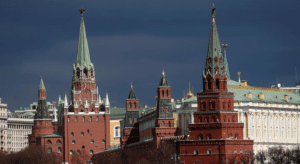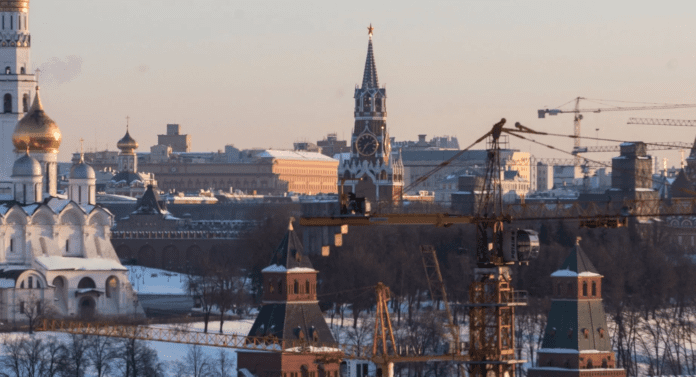Unraveling the Enigma of the Havana Syndrome Investigating the Shadowy World of Sonic Attacks.
1 min read 2024-04-02, 06:20 AM IST

Since its emergence in 2016, the Havana syndrome has perplexed the global community, particularly American diplomats who have reported experiencing sudden debilitating symptoms including severe headaches, disorienting dizziness, and memory loss. With over a hundred cases reported across various locations worldwide, the syndrome has left a trail of unanswered questions and speculation in its wake.(also read: Sovereign William Underpins Kate Through Cancer Determination, Guaranteeing She Doesn’t Feel Alone).
Initially dismissed as psychogenic in nature or attributed to environmental factors, recent investigations have brought forth compelling evidence implicating a shadowy Russian military intelligence unit, Unit 29155, in what appears to be a deliberate campaign of sonic attacks.(also read: Putin’s Intelligence Chief Alleges Involvement of Ukraine, US, and Britain in Moscow Attack).
A joint investigation by The Insider, Der Spiegel, and CBS’s 60 Minutes has shed light on a potentially sinister aspect of the Havana syndrome. Unit 29155, a Russian military intelligence unit, has been identified as a possible perpetrator behind these mysterious sonic attacks. The investigation points to awards and promotions given to unit leaders for the development of non-lethal acoustic weapons, suggesting a capability and motive for orchestrating such attacks.(also read: Putin Addresses Nation Before Presidential Polls, Vows to Forge Ahead Together).
The first cases of the Havana syndrome emerged in Cuba, hence the name, but subsequent reports have surfaced from U.S. personnel stationed in China, Russia, Poland, Georgia, Serbia, Vietnam, India, Colombia, France, and Switzerland. This widespread occurrence across diverse geographical locations strengthens the suspicion of a coordinated campaign rather than isolated incidents. Despite Kremlin’s dismissal of any Russian military involvement, the evidence presented in the investigation raises serious concerns about Russia’s potential role in perpetrating these attacks.(also read: China Hospitals Establish ‘Homework Zones’ for Children Amid Pneumonia Outbreak).
In a twist reminiscent of a spy thriller, American intelligence agencies, tasked with unraveling the mystery of the Havana syndrome, have exhibited reluctance to embrace the notion of deliberate attacks. While a study funded by the U.S. government attributed the symptoms to pre-existing conditions or environmental factors, this narrative has been challenged by mounting evidence suggesting a deliberate and coordinated effort behind the syndrome.
The reluctance of American institutions to acknowledge this possibility underscores the complexity and sensitivity surrounding the issue, potentially implicating diplomatic relations and national security concerns.
The Havana syndrome saga encapsulates the enigmatic nature of modern geopolitical warfare, where unconventional weapons and covert operations blur the lines between traditional conflicts and clandestine tactics. As investigations continue and new evidence surfaces, the true extent of Russian involvement in the Havana syndrome remains to be seen. However, one thing is clear: the mystery surrounding this syndrome transcends mere medical curiosity, encompassing broader geopolitical implications and the evolving landscape of modern warfare.
In conclusion, the Havana syndrome represents a convergence of medical mystery, diplomatic intrigue, and geopolitical tension. As the world grapples with understanding and addressing this phenomenon, the need for transparent investigation, international cooperation, and vigilance against emerging threats is paramount. Only by confronting the complexities of the Havana syndrome head-on can we hope to unravel its enigma and safeguard against future incidents of this nature.
The Kremlin Dismisses Allegations of Russian Involvement in ‘Havana Syndrome’
On April 1st, the Kremlin pushed back against a report suggesting Russian military intelligence’s potential involvement in the perplexing ailment known as the “Havana syndrome,” which has affected U.S. diplomats and operatives worldwide. The report, published by Insider, a Russia-focused investigative media group based in Riga, Latvia, raised eyebrows by alleging that members of a Russian military intelligence unit, identified as 29155 within the GRU (Main Intelligence Directorate), were present at locations where health incidents involving American personnel occurred.
The year-long investigation conducted by Insider, in collaboration with prominent news outlets including CBS’s 60 Minutes and Germany’s Der Spiegel, also claimed that senior members of Unit 29155 were rewarded with awards and promotions for their involvement in the development of “non-lethal acoustic weapons.” These revelations ignited further speculation and heightened concerns regarding Russia’s potential role in orchestrating the reported incidents.
New Global Update- your speediest source for breaking news! READ NOW →
However, Kremlin spokesman Dmitry Peskov swiftly dismissed the report during a press briefing, labeling the allegations as unsubstantiated and emphasizing the lack of credible evidence supporting the claims. Peskov noted that the topic of the ‘Havana Syndrome’ had been sensationalized in the media for years, often accompanied by accusations leveled against Russia. He asserted that despite the persistent accusations, no concrete evidence had been presented to validate such claims, relegating them to the realm of baseless speculation.
“In Washington, the Pentagon confirmed that a senior Pentagon official experienced symptoms similar to those associated with the ‘Havana syndrome’ during the NATO summit in Vilnius last year,” the report stated. This acknowledgment from the Pentagon underscores the seriousness of the issue and the need for a thorough investigation to ascertain the cause of these mysterious symptoms.(also read: European NATO Members Gear Up for Self-Defense Amidst US Uncertainty).
The dismissal by the Kremlin follows a pattern of denial regarding allegations of Russian involvement in various incidents, reflecting the ongoing tensions between Russia and Western nations. The ‘Havana Syndrome’ saga adds another layer of complexity to an already strained relationship, raising questions about trust, transparency, and accountability in international affairs.
As the controversy surrounding the ‘Havana Syndrome’ continues to unfold, it underscores the challenges of navigating the murky waters of modern geopolitics. The conflicting narratives, coupled with the lack of definitive evidence, highlight the difficulty in ascertaining the truth amidst a sea of speculation and geopolitical maneuvering.
In conclusion, while the allegations of Russian involvement in the ‘Havana Syndrome’ may have raised alarm bells, the Kremlin’s dismissal underscores the need for caution and discernment in evaluating such claims. As investigations into the mysterious ailment persist, it is imperative for all parties involved to prioritize transparency, cooperation, and factual accuracy in order to unravel the truth behind this enigmatic phenomenon.

